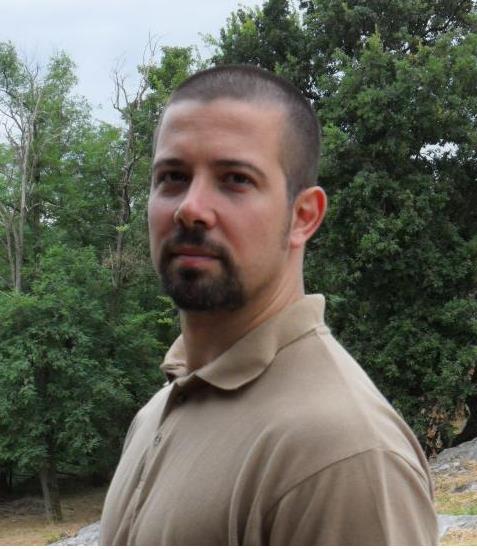 E-mail address: molnar.gabor.tamas@btk.elte.hu
E-mail address: molnar.gabor.tamas@btk.elte.hu
Home institution: Eötvös Loránd University, Budapest
Academic position: assistant professor
Areas of research: theory of the novel, theories of interpretation
Title of the presentation: Figuration and the Experience of Fiction
Most important Publications
- Science/Fiction: Institutions of Knowledge in Thomas Pynchon?s Mason & Dixon in Csongor Lőrincz et al (hrsg), Literatur und Institution,Berlin, 2011, 437-466 (forthcoming)
- Philologie, Pädagogik und ?kritisches Denken? in der Literaturtheorie, übers. v. Christina Kunze, in Pál Kelemen?Ernő Kulcsár Szabó?Ábel Tamás (hg), Kulturthechnik Philologie. Zur Theorie des Umgang mit Texten,Heidelberg: Winter, 2011, pp. 185-208.
- Fictionalizing Acts and Textual Events??Bed and Breakfast? by William Gass, in István Berszán et al., eds., Orientation in the Occurrence, Cluj-Napoca: Cluj University Press, 2009, pp. 361-370.
- ?To Halve the Matter Amicably…? Literary Essays, Interpretations [?barátilag megfelezni a dolgot?. Irodalmi tanulmányok, értelmezések], Budapest: Anonymus, 2006.
- Tristram Shandy and the Communicational Models of Postmodern Prose Fiction, (working title) [A Tristram Shandy és a posztmodern próza kommunikációs modelljei], Budapest, Ráció, 2011, forthcoming
- World Literature After Modernism. The Teaching and Interpretation of Contemporary Narrative Fiction[Világirodalom a modernség után. A kortárs elbeszélő irodalom oktatásához és értelmezéséhez],Budapest: Hatágú Síp Alapítvány, 2005.
Title of the presentation
Figuration and the Experience of Fiction
Abstract
My paper will discuss the role of figuration and figurative language in the interpretation of fictional worlds in literary and narrative theory. My subject is connected with problems of perception and sensation in a number of ways. First, there is the broad issue of how fictional worlds, accessible only through language, are perceived and experienced in the reader?s imagination. Perception here takes on an illusory or hallucinatory character, highlighting the creative, performative power of figurative language. This leads to the question of how the operation of rhetorical figures is related to perception, through some mental operations connected to geometry and the constant shifts between the perceptible and the intelligible.
In some literary and narrative theories, from Wolfgang Iser?s The Act of Reading to Mieke Bal?s Narratology, this oscillation leads to terminological problems. Perception on the level of the text and perception on the level of the fictional world seem to be telescoped into one another and occasionally confused. The substitution of ?image? for ?conception? and ?vision? for ?understanding? underscores the importance of figurative language, and at the same time suggests a tendency to obliterate the figure that enables this very substitution. I intend to develop my argument in critical engagement with ?possible worlds theory,? speech act theory (with which the former is closely linked), the deconstructive critique of ?the epistemology of metaphor? and, finally, Hans Blumenberg?s notion of ?absolute metaphors??metaphors naming that which is ultimately beyond the scope of experience and perception.
